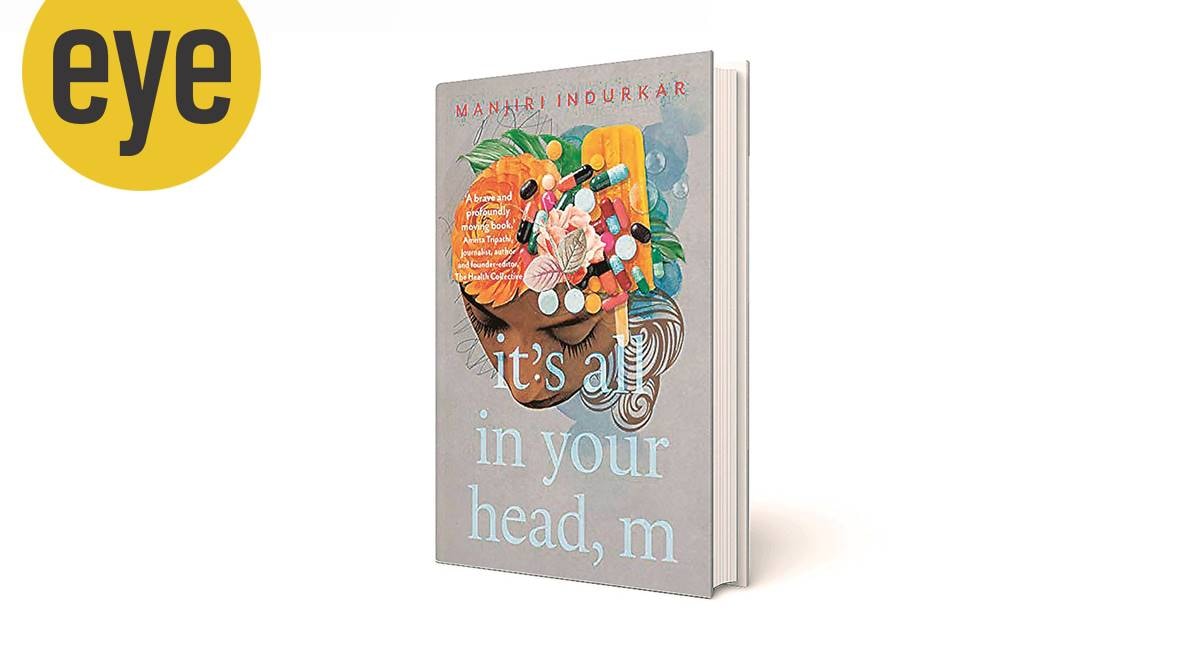 Blank vertical book template.
Blank vertical book template. In her memoir, It’s All in Your Head, M, Manjiri Indurkar recalls the reaction of one of her therapists when she was explaining how Alain Resnais’ iconic film Hiroshima Mon Amour (1959) struck a chord with her: “…he paused, and, with a pained expression he asked me, ‘So, now you feel like you were in the Hiroshima bombing?’”
Writing about your inner world is terrifying. You dissect yourself, your experiences and your thoughts, laying them out for the world to scrutinise, study, discuss, and weigh in on. You open yourself up to being misunderstood, judged, accused of self-absorption, or even dismissed. In her memoir, Indurkar lays it all out — her prolonged sexual abuse as a child, her thorny relationship with her grandmother, her insecurities, her obsession with illness and her body, along with descriptions of the many trips to the toilet during the time her bowels gave in.
Indurkar’s book is personal to the extent that it very rarely strays out of her close personal spaces. Most of it is set in the Delhi flat she shared with a former partner, and her childhood home in Jabalpur — both are spaces in which she fought personal battles, and which she found were not as comfortable and secure as she had imagined.
Because of the very intimacy with which Indurkar shares her story, it can be an uncomfortable read. The force of her honesty isn’t in the fact that she recounts difficult episodes from her life, but in how little she holds back when sharing what she felt and thought during those times.
In her book, Indurkar tells us about how she began to be regularly sexually abused at the age of six by someone known to her family, and of the trauma that she has carried since then. This trauma expressed itself in myriad ways, including an all-consuming fear of falling ill which unhinged her life for a whole year, obsessive hair plucking, and a collapse of her physical health.
Indurkar’s honesty in recalling how she felt about her abuser as a six-year-old can be unnerving. “…you see, I was in love with Ajit. To my mind, what Ajit and I had was special. We were in love and would marry each other, I assumed. Just like lovers did in the movies. When he wasn’t sexually abusing me, he was just very nice to me.”
She shares with us her frayed feelings towards her grandmother, who remained silent after having full knowledge of her abuse. She walks us through the year in which all her attention zeroed in solely on her own body, looking out for the slightest aches, obsessing over every physical feeling she experienced.
A story that runs through the book is of her relationship with her former partner, whom she calls Avi. Here is where I felt ill at ease as she shared intimate details about how their relationship came to be, how it developed and deteriorated. We hear about all the ways he was wonderful, but also about all the ways he wasn’t. Being privy to a one-sided telling of a complicated relationship is uncomfortable. But that’s just the nature of personal story-telling.
Several times in the book, Indurkar treads on why she wrote this book. Once she writes, “This book will be my awakening”. Elsewhere, she explains why she writes at all: “I never wanted to become a writer but I only became one so that another story of trauma does not get lost, so that through my story I can tell the stories of all the children who suffered the way I did, or worse.” At the end of the book, she tells us of her experience of writing it: “Today, I am a different person than I was when I started writing this book. Today I am able to demand my space better because I am able to understand and empathise with my struggles better.”
This book is a deeply personal work which has obviously been a part of the author’s process of gathering herself. It is also an unsettling portrayal of how the mind and the body can work together so destructively in the face of unaddressed trauma. It doesn’t have an ending as such — the young author leaves us in a much better place in her life than when she begins. The book is just a station in her much longer journey.